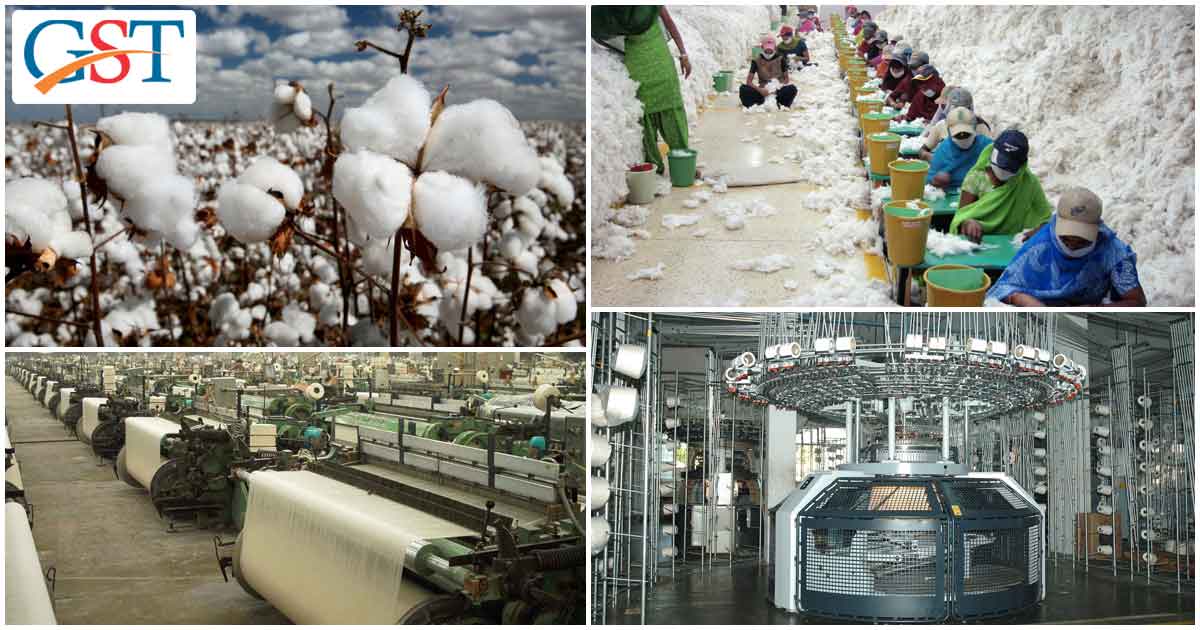
Recently, the cotton industry is in a problematic situation as earlier where there was no tax on the buyers of cotton from the farmers are now levied with 5 percent GST in case of exporting the cotton or selling it to the exporters. Whereas the exporters will have to bear only 0.1 percent of GST on it. The issue is brought up by the application of reverse charge mechanism.
This impact has led to the narrow sales of the cotton as from the conditions straightaway from Gujarat. As Gujarat is one of the biggest cotton producers in the country, the state is now flourishing with cotton in the current time period but very few ginners have come to buy the cotton. From few days it has been noticed that the cotton sales are down due to the application of reverse charge mechanism on such industry.
Actually, the matter is that the exporters only have to give 0.1 percent GST and if they will pass 5 percent GST to the ginners, it seems that the capital would be blocked from this, according to them. Apart from this, ginners have reduced the purchase from the farmers by 30 percent and also stopped making sales to the exporters due to this reason.
There are around 5,000 ginning mills in the country in which around 1200 are in Gujarat. On one side, when the cotton has been speculated to have bumper growth, there are dark clouds on it due to the GST applicability even in its complex form. The community of ginners along with the association concerning are in talks to report this issue to the GST council for further resolution.
The application of 5 percent GST under the reverse charge mechanism has led to many tensions in the industry. The notification released by the government stated that the supply of raw cotton by the farmers will be charged under GST and has to be paid by the buyers of it i.e. ginners and traders under the reverse charge mechanism making cotton expensive for the procurement.
Reverse charge mechanism is a big issue for the cotton industry as the taxpayers from the cotton field are protesting against the RCM provisions. Cotton Association of India has said that the if GST council in its next meeting which is scheduled on 21 December didn’t resolve the reverse charge mechanism issue than the industry will go on indefinite strike across the nation.
Under the goods and services provision, the reverse charge mechanism of GST states that the tax is to be paid by the buyer, not by the supplier. Cotton industry ginners said that raw materials purchased by them do not pay RCM under GST which has got there money stuck into the procedure.